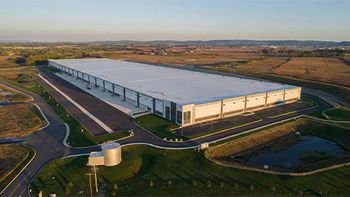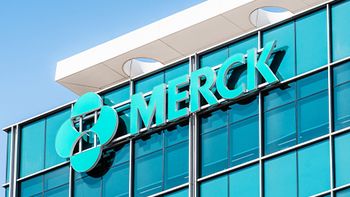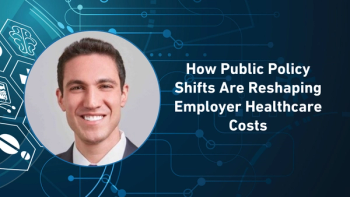
- Pharmaceutical Commerce - July/August 2010
Rutgers Pharmaceutical MBA Program: Training Future Leaders
New Jersey is known as the Mecca of the pharmaceutical industry in North America and is home to 15 of the world’s 20 largest pharmaceutical companies. In 2009, the industry pumped $28.7 billion into the New Jersey economy. Just to have a feel for the size and significance of that amount, it is almost equal to that state’s annual budget.
There is no doubt that fostering the industry’s continued growth is in the best interest of New Jersey. Given the highly complex nature of the pharmaceutical business, highly skilled manpower is the key to its success and growth. Rutgers Business School (RBS), in collaboration with seven New Jersey-based pharmaceutical companies, began offering a special MBA concentration in Pharmaceutical Management in 2000. The participating companies are Bristol-Myers Squibb, Eisai, Johnson & Johnson, Merck, Novartis, Roche, and Schering-Plough (now part of Merck).
RBS, in partnership with these companies, developed a Pharmaceutical Management curriculum that includes the development of six pharmaceutical-specific courses: US Healthcare System and Managed Markets, Legal & Ethical Issues of the Pharmaceutical Industry, Pharmaceutical Industry Structure & Dynamics, Pharmaceutical Marketing Research, Pharmaceutical Product Management, and Managing the Pharmaceutical Sales Force. Five of these courses are being taught by industry professionals. In addition to the course work, once a month students attend seminars and talks organized by the industry partners at their company sites.
The industry partners offer full scholarships (pharmaceutical management scholars) to students selected for the program. The selection criteria for the Pharmaceutical Industry Scholarship include GMAT scores, work experience, and the performance of the applicants at the interviews conducted by the scholarship committee. The committee consists of members from the partnering companies and Rutgers Business School.
The program can be pursued either full- or part-time basis. It requires 60 hours of course work to complete the MBA degree, including 18 hours focusing only on Pharmaceutical Management. In the full-time program, the degree can be completed in two years, while the part-time program may take up to four years, depending on the number of courses taken in each semester. Students in the full-time program are given paid summer-internship placements at the end of the first year.
The RBS Office of Career Management works with the students to prepare them for successful job search and placements. This office organizes open houses bringing together employers and students and arranges interviews with the employers. Since the inception of the program ten years ago, RBS has achieved 100% placement every year for summer internships and 90% placement for full-time jobs within three months of graduation. The students are not required to accept jobs only from the partnering companies. In fact, many non-partnering biotech and pharmaceutical companies recruit from the RBS program, and students often receive multiple offers with the current average starting salary in the low $90,000s, in addition to a signing bonus which runs about 10-15% of the base salary. Over 150 students have graduated from the program since its inception.
In addition to the regular course work and the monthly seminar visits to the sponsoring companies’ sites, students participate in leading and managing student-run clubs. The club activities include organizing a speakers’ series program, alumni relations and networking events, and editorial leadership of the club’s newsletter.
The Rutgers MBA Program is designed to allow students the flexibility to concentrate in more than one area. We encourage students to have a functional area concentration such as marketing, finance, supply chain, or information technology along with pharmaceutical management. This dual concentration enhances the competitive edge of our students within the life sciences sector.
Having a background and experience in the life sciences enhances the chance of placement in the biopharmaceutical industry, an area in which over 50% of RBS MBAs find their first full-time placement. Typically, they will have taken a few pharmaceutical management courses along the way, but it was not their area of concentration. In addition to the dual concentration within the MBA program, RBS also offers a dual degree in MBA/MD, MBA/MPH, MBA/JD, and MBA/MS in collaboration with other schools within Rutgers University and with the University of Medicine and Dentistry of New Jersey (UMDNJ).
Beginning in the fall of 2011, RBS will add a new dual degree in MBA/PharmD in collaboration with the Mario School of Pharmacy at Rutgers. Currently, there are about 35 universities around the country offering such an MBA/PharmD dual-degree program, but the Rutgers MBA/PharmD dual-degree program is especially attractive to the biopharmaceutical industry because of the success of both the Rutgers Pharmaceutical MBA Program and the PharmD Fellowship Program at the Mario School of Pharmacy.
A recent study by the Mario School of Pharmacy showed that applicants with PharmD/MBA dual degree enjoy a significantly higher probability (85%) for onsite interviews at biopharmaceutical companies. With Rutgers Pharmaceutical MBA Program’s track record of successful job placement in the industry, a dual degree in PharmD/MBA is an important step in providing New Jersey companies in the pharmaceutical, biotechnology and healthcare sectors the leadership talent they need to compete effectively in an increasingly global economy. PC
ABOUT THE AUTHOR
Mahmud Hassan, PhD, is a Professor in Finance and Economics at the Rutgers Business School. He is also Director of the Pharmaceutical Management MBA Program, and Director of The Blanche and Irwin Lerner Center for Pharmaceutical Management Studies. His PhD is from Vanderbilt University. At RBS, he specializes in healthcare economics, finance and policy.
Articles in this issue
about 12 years ago
Industry group Rx-360 lays plans for expanding activities in Chinaover 12 years ago
Eagle Productivity opens new training center in Spainover 12 years ago
Pharma distribution channels crank up for flu seasonover 12 years ago
testalmost 13 years ago
Physician's sample closet unites branded, generic and OTC productsNewsletter
Stay ahead in the life sciences industry with Pharmaceutical Commerce, the latest news, trends, and strategies in drug distribution, commercialization, and market access.




